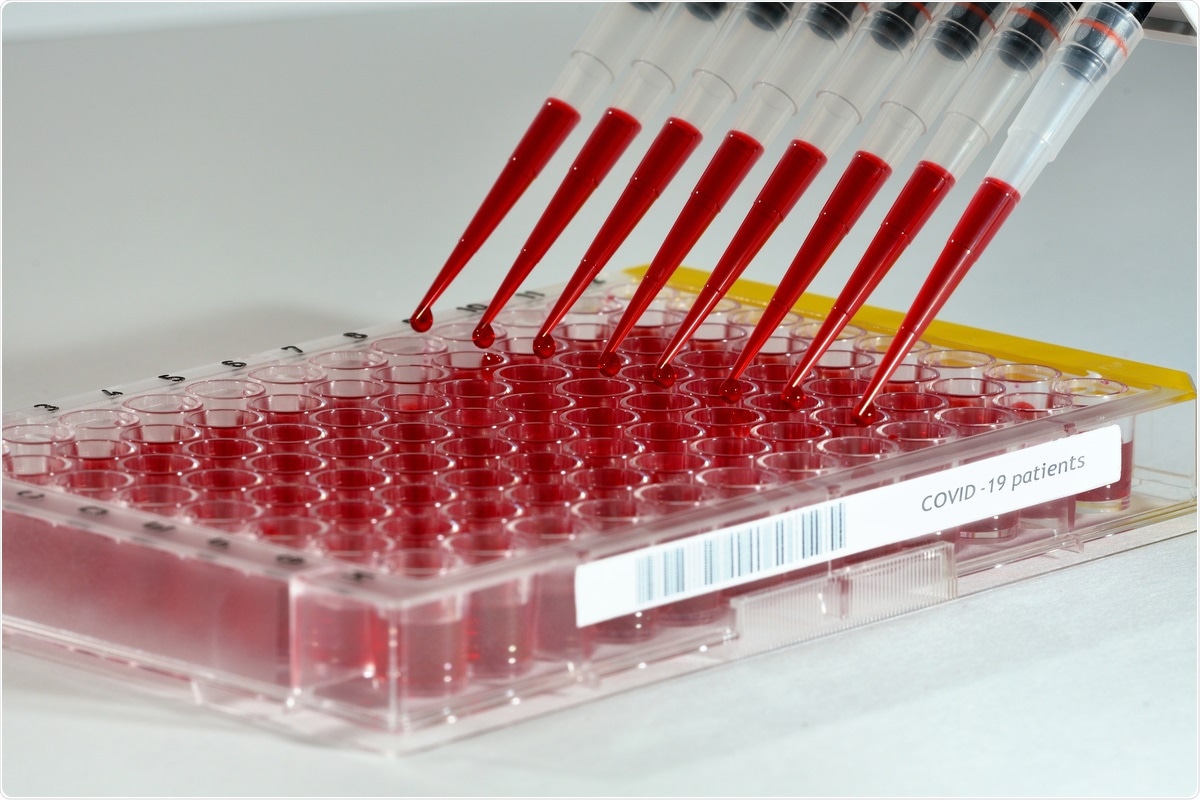A team of scientists from the United States has recently developed a single-tube duplex molecular assay for rapid detection of severe acute respiratory syndrome coronavirus 2 (SARS-CoV-2) variants containing E484K and N501Y spike mutations. The assay takes only 2.5 hours to identify viral variants from nasopharyngeal samples. A detailed description of the assay method is currently available on the medRxiv* preprint server.

Background
SARS-CoV-2, the causative pathogen of the coronavirus disease 2019 (COVID-19) pandemic, is an enveloped, single-stranded, positive-sense RNA virus with a genome size of about 30 kb. Since its emergence in December 2019, SARS-CoV-2 has undergone more than 12,000 mutations in response to various selection pressures, including antiviral therapeutics and host immune responses. Studies investigating the genomic alterations in SARS-CoV-2 have shown that most of these mutations occur in the spike encoding region, which subsequently facilitates the virus to evolve independently into several genomic variants. Some of the newly emerged variants of SARS-CoV-2, including B.1.1.7, B.1.351, and P.1 variants, have been designated as the variants of concern (VOC) because of their increased transmissibility and ability to evade host immune responses.
In the later phase of the COVID-19 pandemic, two spike mutations, including E484K and N501Y, have drawn significant attention because of their ability to increase the interaction between spike – angiotensin-converting enzyme 2 (ACE2) and reduce the efficacy of SARS-CoV-2 neutralizing antibodies. The SARS-CoV-2 variants containing these mutations are currently circulating as the predominant viral strains in many countries, including the UK, South Africa, Brazil, and the USA.
In the current study, the scientists have developed a genotyping assay to rapidly identify the signature mutations in various SARS-CoV-2 variants. They have used this assay to screen nasopharyngeal samples collected from COVID-19 patients.
Single-tube duplex molecular assay
To identify the signature mutations via genotyping, the scientists used oligonucleotide hybridization probes, also known as molecular beacon probes. To generate single-stranded DNA targets for the probes, they conducted asymmetric reverse transcription polymerase chain reaction (RT-PCR) to amplify the spike gene region covering both 484 and 502 codons. In the assay, they used two differentially labeled probes for simultaneous genotyping at both genomic regions. Based on the probe design, the wildtype sequence is expected to produce a higher melting temperature compared to that of the mutated sequence.
Using the assay, they successfully genotyped viral sequences extracted from different SARS-CoV-2 variants, including one wildtype strain, two B.1.1.7 variants, two B.1.351 variants, and one recently emerged variant containing E484K mutation.
Furthermore, to identify the signature mutations in patient-obtained samples, they conducted the genotyping assay using heat-inactivated, SARS-CoV-2-positive nasopharyngeal samples collected from 8 different hospitals. The findings revealed that the proportions of E484K and N501Y mutations in the samples were 8.8% and 8%, respectively. However, co-occurrence of both mutations was not observed in any of the tested samples. Interestingly, a novel N501T mutation was identified in 11 samples that displayed a significantly different melting profile than the wildtype and N501Y mutation.
With further analysis, the scientists observed a sharp increase in E484K mutation in samples collected in February 2021, whereas none of the samples from December 2020 exhibited this mutation. A similar trend they observed for N501Y mutation as well.
For further validation of the genotyping assay, the scientists conducted whole genome sequencing analysis using a panel of 74 samples containing different genotypes identified by the current genotyping assay. The analysis revealed a 100% uniformity between the whole genome sequencing results and the current screening results.
Study significance
The study describes the development and validation of a novel genotyping assay that is highly sensitive to identify the signature mutations found in newly emerged variants of SARS-CoV-2. Furthermore, the assay is capable of identifying novel mutations that are present in the probe-binding regions.
Conventionally, whole genome sequence analysis is conducted to identify mutations in viral variants. However, this method is time-consuming and involves complex data analysis processes. With a rapid turn-around-time (only 2.5 hours), the novel genotyping assay provides a high-throughput screening platform for rapid identification of newly emerging SARS-CoV-2 mutations.
*Important Notice
medRxiv publishes preliminary scientific reports that are not peer-reviewed and, therefore, should not be regarded as conclusive, guide clinical practice/health-related behavior, or treated as established information.
https://news.google.com/__i/rss/rd/articles/CBMifmh0dHBzOi8vd3d3Lm5ld3MtbWVkaWNhbC5uZXQvbmV3cy8yMDIxMDMzMC9SZXNlYXJjaGVycy1kZXZlbG9wLW5vdmVsLXRlc3QtdGhhdC1zY3JlZW5zLWZvci1TQVJTLUNvVi0yLXZhcmlhbnRzLW9mLWNvbmNlcm4uYXNweNIBggFodHRwczovL3d3dy5uZXdzLW1lZGljYWwubmV0L2FtcC9uZXdzLzIwMjEwMzMwL1Jlc2VhcmNoZXJzLWRldmVsb3Atbm92ZWwtdGVzdC10aGF0LXNjcmVlbnMtZm9yLVNBUlMtQ29WLTItdmFyaWFudHMtb2YtY29uY2Vybi5hc3B4?oc=5
2021-03-30 15:41:00Z
52781469712313
Bagikan Berita Ini














0 Response to "Researchers develop novel test that screens for SARS-CoV-2 variants of concern - News-Medical.Net"
Post a Comment